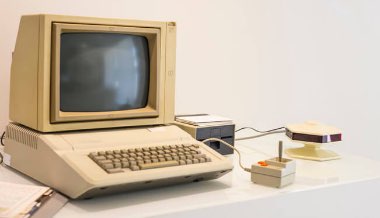The Dangers of Using an ERP Not Specific to Your Industry
by Roberto Mangual | January 9, 2020

Enterprise Resource Planning (ERP) enables manufacturing organizations to gain greater visibility into operations, increase productivity and efficiency, and make critical business decisions that can lead to improved profitability.
But does it really matter whether the ERP your organization uses was designed specifically for your industry? For fashion and home goods brands, the answer is YES.
When your ERP lacks specific functionality and configurability for your industry, you’ll find you must constantly adapt your business to work within the confines of the ERP system, as opposed to having a system that can seamlessly configure to your current processes. Instead of enhancing your organization’s efficiency, the wrong ERP might actually slow you down as you struggle to keep track of some types of data manually, outside the ERP system.
Kick the Spreadsheet Habit with Industry-Specific ERP
Historically, the fashion industry is not very tech savvy. Many brands that do not yet use an ERP are instead creating multiple spreadsheets to track different products. They use multiple spreadsheets to track production and Work in Progress.
Spreadsheets are notoriously inaccurate for a variety of reasons. Typographical errors are common, in spite of the best intention of employees. Usually, multiple copies of the spreadsheet end up proliferating around the organization and it is a challenge to identify which is the most current. In fact, different employees may be updating different copies of the same spreadsheet, meaning no copy is entirely accurate.
In contrast, an ERP system offers one centralized point for all data to reside. All appropriate employees and managers are able to access the system at any time for the more up-to-date information. ERP offers accurate reporting that displays real-time information.
Real-time visibility is the key to ensuring both customer satisfaction and profitability. At the end of the season, your ultimate goal is to have the least amount of inventory in your warehouse while having reliably serviced your customers and delivered products to them in a timely manner.
General ERP Lacks Industry-Specific Language and Standards
Having the ability to use your ERP as the one and only source of truth in your organization is a huge benefit. But that benefit requires you to keep all of your information in the ERP.
An industry-specific ERP for fashion and apparel will enable your brand to utilize the fashion industry size matrix—so your resource planning captures industry-specific language and standards, including style, color, label, dimensional sizes, and pre-pack information such as tickets, tags, and labels. If you fail to get this data into the system, your ERP reporting will be worthless and your employees will likely fall back to spreadsheets for tracking.
Death by a Million SKUs or Easy Multi-Level Configuration?
In a typical generic ERP, employees have to set up different SKUs for every iteration of size, color, style, and more. In a fashion industry ERP, they can set up one style and enjoy multi-level configuration to attach different attributes. This significantly reduces the data entry burden and ensures the information in your ERP is comprehensive. Real-time inventory reports in an industry-specific ERP have a level of precision and accuracy that is difficult to achieve in a traditional system.
Fashion-Specific ERP Offers a More Intuitive User Experience
If you adopt a generic ERP, it will contain all sorts of functionality that isn’t useful to your employees and lack key features they need. This results in confusion and a substandard user experience. On the other hand, if you choose an ERP designed for your industry, it will capture the right information, accommodate the right business processes, and produce reports with meaningful information.
Next-generation Exenta ERP was purpose-built for the fashion and apparel industry, with 700 years of combined experience and apparel-specific expertise supporting its continuous development. It’s a centralized, fully integrated system that enables manufacturers to customize for industry-specific workflows and criteria such as style, color, label, pre-pack and size. Exenta ERP delivers real time visibility across manufacturing operations—from concept to delivery—empowering leaders to make better informed decisions that result in reduced cycle times, and improved efficiency and profitability.
Schedule an Exenta ERP demo today and see the difference it makes to have an ERP designed exclusively for fashion and soft goods manufacturers.
Using an ERP that is specific to the fashion industry is crucial to have for making business decisions, increasing productivity, and efficiency. Schedule a demo today to see how an industry-specific ERP can benefit your company. Request a Demo!


